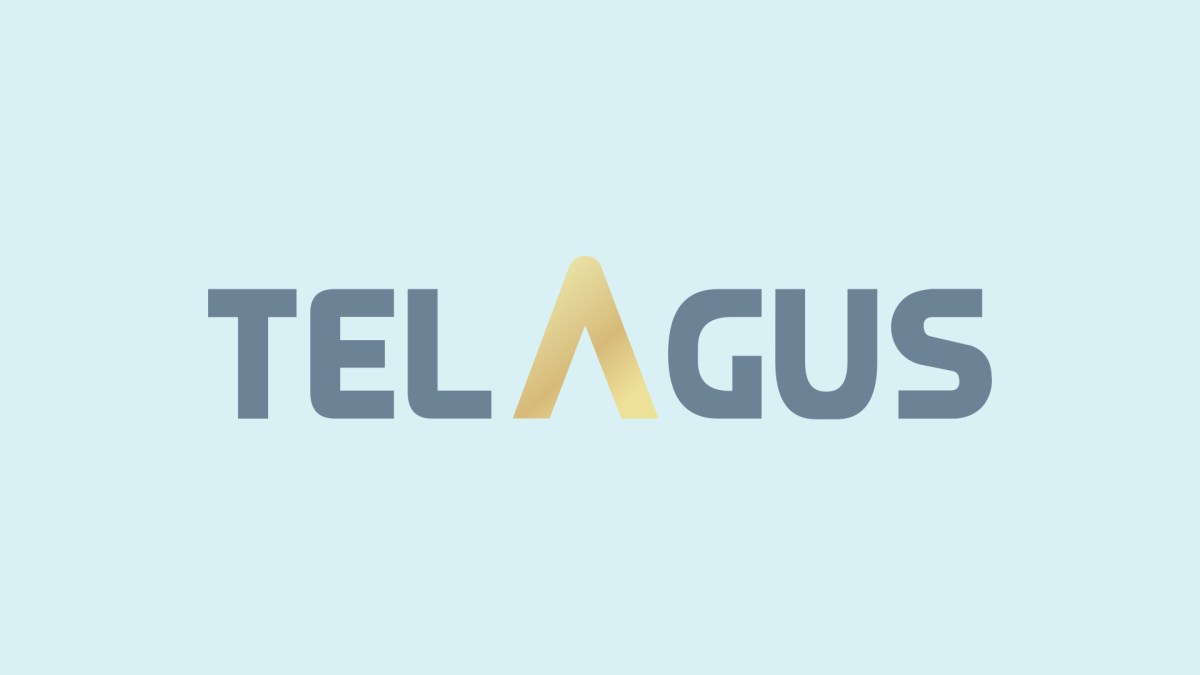Top Cloud-Based CRM Platforms: 7 Ultimate Power Tools for 2024
In today’s fast-paced digital world, the right CRM can make or break your customer relationships. Discover the top cloud-based CRM platforms that empower businesses to scale smarter, sell faster, and serve better.
Why Cloud-Based CRM Platforms Are Revolutionizing Business

The shift from traditional, on-premise CRM systems to cloud-based solutions has been nothing short of transformative. Cloud CRM platforms offer unmatched flexibility, scalability, and real-time access to customer data from anywhere in the world. This evolution is not just technological—it’s strategic.
Flexibility and Remote Accessibility
One of the most compelling advantages of cloud-based CRM platforms is their ability to support remote and hybrid work models. Employees can access customer data, update records, and manage pipelines from any device with an internet connection.
- Access from smartphones, tablets, and laptops
- Synchronization across multiple devices in real time
- Support for distributed sales and service teams
This flexibility became crucial during the global shift to remote work, and it remains a cornerstone of modern business agility. According to Gartner, worldwide public cloud spending is projected to grow significantly year-over-year, reflecting increased reliance on cloud infrastructure.
Cost Efficiency and Predictable Pricing
Unlike on-premise systems that require hefty upfront investments in hardware, software licenses, and IT staff, cloud-based CRM platforms operate on a subscription model. This makes them accessible to businesses of all sizes.
- No need for physical servers or data centers
- Lower total cost of ownership (TCO)
- Pay-as-you-go or tiered pricing plans
“The cloud has democratized access to enterprise-grade tools, allowing even small startups to compete with industry giants.” — Forbes Technology Council
Automatic Updates and Scalability
Cloud CRM vendors handle all software updates, security patches, and system maintenance. This means businesses always have access to the latest features without downtime or additional costs.
- Seamless integration of new functionalities
- Instant scalability during growth spikes
- Zero manual upgrade processes
This automatic evolution ensures that companies using top cloud-based CRM platforms stay ahead of the curve without diverting internal resources.
Top Cloud-Based CRM Platforms: A Comprehensive Breakdown
With dozens of CRM solutions available, choosing the right one can be overwhelming. To simplify your decision, we’ve analyzed the top cloud-based CRM platforms based on features, usability, integration capabilities, pricing, and customer support.
Salesforce: The Industry Leader
Salesforce continues to dominate the CRM landscape as the most widely adopted cloud-based platform globally. Known for its robust customization and extensive ecosystem, it serves businesses from startups to Fortune 500 companies.
- AI-powered insights with Einstein Analytics
- Over 3,000+ apps available on the AppExchange
- Strong automation and workflow capabilities
Salesforce’s Sales Cloud, Service Cloud, and Marketing Cloud offer modular solutions tailored to specific business functions. Its commitment to innovation is evident in its continuous investment in AI and machine learning. Learn more at salesforce.com.
HubSpot CRM: Best for Small to Mid-Sized Businesses
HubSpot CRM stands out for its user-friendly interface and free entry-level plan. It’s ideal for companies focused on inbound marketing, sales, and customer service alignment.
- Free CRM with core features like contact management and deal tracking
- Seamless integration with email, calendar, and social media
- Powerful marketing automation tools in paid tiers
HubSpot’s ecosystem includes CMS, operations, and service hubs, making it a full-stack growth platform. Visit hubspot.com to explore its offerings.
Microsoft Dynamics 365: Deep Integration with Microsoft Ecosystem
For organizations already using Microsoft 365, Dynamics 365 offers seamless integration with Outlook, Teams, Excel, and Power BI. It’s a powerful choice for enterprises seeking deep operational alignment.
Top Cloud-Based CRM Platforms – Top Cloud-Based CRM Platforms menjadi aspek penting yang dibahas di sini.
- Native integration with Office 365 and Azure
- Advanced analytics and AI-driven forecasting
- Customizable modules for sales, customer service, field service, and marketing
Dynamics 365 is particularly strong in industries like manufacturing, healthcare, and professional services. More details at dynamics.microsoft.com.
Key Features to Look for in Top Cloud-Based CRM Platforms
Not all CRM platforms are created equal. When evaluating options, certain features should be non-negotiable for long-term success.
Contact and Lead Management
At the heart of any CRM is the ability to organize and track customer interactions. Top cloud-based CRM platforms provide centralized databases where every touchpoint—emails, calls, meetings, and notes—is logged automatically.
- Duplicate detection and merge tools
- Custom fields and segmentation options
- Lead scoring and prioritization
Effective lead management ensures no opportunity slips through the cracks and enables personalized follow-ups.
Automation and Workflow Tools
Automation reduces manual tasks, minimizes errors, and frees up time for high-value activities. Look for platforms that offer visual workflow builders and trigger-based actions.
- Email automation and drip campaigns
- Task assignment based on deal stage
- Automated data entry from forms and integrations
“Businesses that automate their CRM processes see up to a 30% increase in sales productivity.” — Nucleus Research
Reporting and Analytics Dashboards
Data-driven decisions require clear, real-time insights. The best CRM platforms offer customizable dashboards that display KPIs like conversion rates, sales cycle length, and customer lifetime value.
- Drag-and-drop report builders
- Predictive analytics and trend forecasting
- Exportable reports in PDF, Excel, or CSV formats
These tools help managers identify bottlenecks, recognize top performers, and adjust strategies proactively.
Integration Capabilities of Top Cloud-Based CRM Platforms
A CRM doesn’t exist in isolation. Its true power emerges when it connects with other business systems like email, marketing tools, e-commerce platforms, and ERP software.
Email and Calendar Synchronization
Top cloud-based CRM platforms integrate directly with Gmail, Outlook, and other email clients to log communications automatically. This eliminates manual data entry and ensures a complete interaction history.
- One-click logging of emails and attachments
- Scheduled follow-ups and reminders
- Meeting scheduling via integrated calendars
For example, HubSpot and Salesforce both offer bi-directional sync with Google Workspace and Microsoft 365, ensuring no communication gap.
Marketing and Social Media Tools
Modern CRMs go beyond sales tracking—they support full-funnel marketing. Integration with platforms like Mailchimp, Facebook Ads, LinkedIn, and Twitter allows for unified campaign management.
- Track lead sources from social media campaigns
- Sync landing page submissions to CRM records
- Measure ROI across digital channels
Salesforce Pardot and HubSpot Marketing Hub are prime examples of how CRM and marketing automation converge.
E-commerce and Payment Gateway Integration
For businesses selling online, CRM integration with Shopify, WooCommerce, Stripe, and PayPal is essential. These connections enable automatic order tracking, customer behavior analysis, and post-purchase engagement.
Top Cloud-Based CRM Platforms – Top Cloud-Based CRM Platforms menjadi aspek penting yang dibahas di sini.
- Sync customer purchase history with CRM profiles
- Trigger personalized thank-you emails after checkout
- Identify upsell opportunities based on buying patterns
Zoho CRM, for instance, offers native integrations with major e-commerce platforms, enhancing customer lifecycle management.
User Experience and Interface Design in Top Cloud-Based CRM Platforms
No matter how powerful a CRM is, poor usability can hinder adoption. Employees are less likely to use a system that’s clunky or unintuitive, which defeats the purpose of implementing a CRM in the first place.
Intuitive Navigation and Dashboard Layout
The best platforms prioritize clean, logical navigation. Users should be able to find contacts, deals, tasks, and reports within seconds.
- Customizable home dashboards
- Role-based views for sales, marketing, and support teams
- Minimal clicks to perform common actions
HubSpot excels here with its minimalist design and contextual guidance, while Salesforce has improved significantly with its Lightning Experience interface.
Mobile App Functionality
A mobile-optimized CRM is no longer optional. Sales reps on the go need full functionality from their smartphones or tablets.
- Offline access and data sync
- Voice-to-text note entry
- Mobile deal updates and signature capture
Salesforce Mobile and Zoho CRM’s mobile app offer robust features that mirror desktop experiences, ensuring continuity in the field.
Onboarding and Training Resources
Even the most intuitive CRM requires some learning curve. Top cloud-based CRM platforms provide comprehensive onboarding tools.
- In-app tutorials and walkthroughs
- Video libraries and certification programs
- Community forums and live webinars
Salesforce Trailhead is a standout example—an interactive learning platform that gamifies CRM training and rewards skill development.
Security and Data Privacy in Cloud-Based CRM Systems
Storing sensitive customer data in the cloud raises valid concerns about security and compliance. However, leading CRM providers invest heavily in protecting user data.
Data Encryption and Access Controls
Top cloud-based CRM platforms use end-to-end encryption (both in transit and at rest) to safeguard information. Multi-factor authentication (MFA) and role-based permissions further enhance security.
- SSL/TLS encryption for data transfer
- AES-256 encryption for stored data
- Granular user permissions and audit logs
These measures ensure that only authorized personnel can access critical customer records.
Compliance with Global Regulations
Reputable CRM vendors comply with international data protection laws such as GDPR (Europe), CCPA (California), and HIPAA (for healthcare).
- Data residency options (choose where your data is stored)
- Automated data deletion and consent management
- Regular third-party security audits
For example, Microsoft Dynamics 365 offers built-in GDPR compliance tools, helping businesses manage consent and data subject requests efficiently.
Top Cloud-Based CRM Platforms – Top Cloud-Based CRM Platforms menjadi aspek penting yang dibahas di sini.
Disaster Recovery and Backup Protocols
Cloud providers typically offer superior backup and recovery compared to on-premise systems. Automated daily backups, redundant data centers, and failover mechanisms minimize downtime.
- 99.9% uptime SLAs (Service Level Agreements)
- Geographically distributed server clusters
- Rapid restoration in case of outages
“Cloud CRM systems often have better disaster recovery than traditional IT setups.” — TechRepublic
Customer Support and Vendor Reliability Among Top Cloud-Based CRM Platforms
Even the most advanced CRM will underperform without reliable support. When issues arise, timely assistance can prevent lost sales and frustrated teams.
Support Channels and Response Times
The best vendors offer multiple support channels: phone, email, live chat, and self-service portals. Response times vary by subscription tier.
- Premium plans often include 24/7 phone support
- Standard plans may offer business-hour email support
- Community forums for peer-to-peer help
Salesforce offers extensive support options, including a dedicated customer success manager for enterprise clients.
Knowledge Base and Documentation Quality
A well-maintained knowledge base is invaluable for troubleshooting and learning. Top cloud-based CRM platforms invest in searchable help centers with step-by-step guides, FAQs, and video tutorials.
- Contextual help within the app interface
- API documentation for developers
- Release notes and changelogs
HubSpot’s knowledge base is widely praised for its clarity and depth, making it easy for users to find answers independently.
Vendor Reputation and Market Longevity
Choosing a CRM from a stable, reputable vendor reduces the risk of service discontinuation or poor updates. Companies like Salesforce, Microsoft, and Zoho have proven track records.
- Consistent product innovation over decades
- Strong financial backing and R&D investment
- Positive customer reviews on platforms like G2 and Capterra
Longevity signals reliability—critical when building long-term customer data strategies.
Emerging Trends Shaping the Future of Top Cloud-Based CRM Platforms
The CRM landscape is evolving rapidly, driven by AI, automation, and changing customer expectations. Staying ahead means understanding these trends now.
Artificial Intelligence and Predictive Analytics
AI is no longer a luxury—it’s a necessity. Modern CRMs use AI to predict customer behavior, recommend next steps, and automate responses.
- Salesforce Einstein suggests optimal times to contact leads
- HubSpot uses AI to personalize email content
- Microsoft Dynamics 365 forecasts sales trends using historical data
These capabilities enhance decision-making and reduce guesswork in sales and marketing.
Conversational CRM and Chatbot Integration
Customers expect instant responses. Conversational CRM tools powered by chatbots and natural language processing (NLP) deliver 24/7 engagement.
- Automated FAQ handling on websites
- Lead qualification via chatbot interviews
- Seamless handoff to human agents when needed
Platforms like Zendesk and Freshsales offer built-in chatbot functionality, bridging the gap between marketing and support.
Top Cloud-Based CRM Platforms – Top Cloud-Based CRM Platforms menjadi aspek penting yang dibahas di sini.
Hyper-Personalization and Customer Journey Mapping
Generic messaging is outdated. Top cloud-based CRM platforms enable hyper-personalization by combining behavioral data, purchase history, and engagement patterns.
- Dynamic content in emails and landing pages
- Triggered campaigns based on user actions
- Visual journey mapping to identify drop-off points
This level of personalization increases conversion rates and fosters loyalty.
What are the best cloud-based CRM platforms for small businesses?
For small businesses, HubSpot CRM and Zoho CRM are excellent choices due to their affordability, ease of use, and robust free plans. Both offer essential features like contact management, email tracking, and basic automation without requiring technical expertise.
How do cloud-based CRM platforms improve sales productivity?
Cloud-based CRM platforms streamline sales processes by centralizing customer data, automating follow-ups, and providing real-time insights. This reduces administrative workload, improves lead conversion, and enhances team collaboration—leading to faster deal closures and higher revenue.
Are cloud CRM systems secure?
Yes, top cloud-based CRM platforms employ advanced security measures including data encryption, multi-factor authentication, and compliance with global privacy regulations. In many cases, they are more secure than on-premise systems due to dedicated security teams and continuous monitoring.
Can I integrate my CRM with other business tools?
Absolutely. Most top cloud-based CRM platforms offer native integrations or APIs for connecting with email, marketing automation, e-commerce, accounting, and customer support tools. This ensures seamless data flow across your entire tech stack.
What is the average cost of a cloud-based CRM?
Prices vary widely. Free plans (like HubSpot’s) are available for startups, while enterprise solutions like Salesforce can cost $300+ per user per month. Most mid-tier platforms range from $12 to $50 per user monthly, depending on features and scale.
Choosing the right CRM is one of the most impactful decisions a business can make. The top cloud-based CRM platforms—Salesforce, HubSpot, Microsoft Dynamics 365, Zoho CRM, and others—offer powerful tools to manage customer relationships, drive sales, and deliver exceptional service. By evaluating features like automation, integration, security, and user experience, businesses can select a solution that aligns with their goals. As AI, personalization, and conversational interfaces shape the future, investing in a modern, scalable CRM is no longer optional—it’s essential for sustainable growth and competitive advantage.
Top Cloud-Based CRM Platforms – Top Cloud-Based CRM Platforms menjadi aspek penting yang dibahas di sini.
Further Reading:



